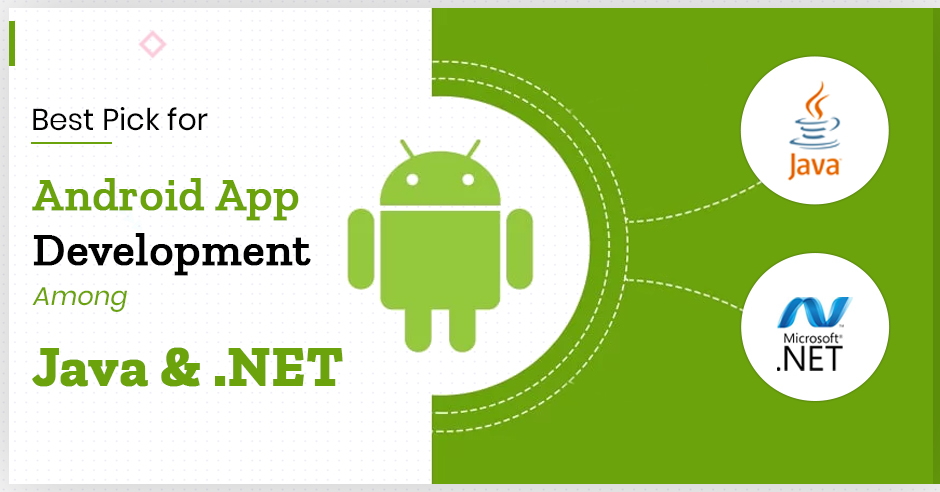The decision of choosing the apt technology for another business application depends upon various aspects which include scalability, security, connectivity requirements, infrastructure available, preference of the clients, budget, and compatibility. When it comes to android development all these factors make a great difference. Thus proper research is necessary for getting the desired outcome instead of rewriting the code again or changing the framework in the middle of the app development.
The debate for most of the android app developers is Java or .Net. For an Enterprise-grade application that requires strict security and a high level of data integrity, a .NET or Microsoft technology-based solution may be the right decision. When it comes to a cross-platform operability in-accordance with a motto “Write once, deploy anywhere” Java is the best option to opt for. Java and .NET are two of the major frameworks which are being used for large scale applications. Both technologies have evolved over the years and are providing great support and enhancing the desktop as well as server-side application development.
Many times, the organizers, as well as the android application development companies, need to choose between these two. There are advantages as well as disadvantages for both of these platforms. The final goal of both the platforms is quite similar, however, the ways and means are different. There are a few contrasts in the internal mechanisms of the frameworks which are used. Let us have a look quickly at how can we compare both of these frameworks briefly:
Multi-Platform VS Windows:
Microsoft provides a couple of open-source implementations of .NET frameworks. .NET is essentially focused on the windows operating system. Java is, however, very convenient and flexible. It depends on the idea of the software whether the same software should be used interoperably with different computers, devices as well as consumer gadgets of a network. Java applications can also run on a virtual machine and hence they have an advantage where they can write once and deploy everywhere. Thus with Java, the application runs anywhere without having to do the extra work of rewriting the application code.
Integrated Development Environment (IDE):
For .NET applications, Microsoft Visual Studio is the default IDE. This tool basically gives everything which a developer needs to develop, deploy and debug when it comes to applications that are targeted for the .NET framework. When it comes to JAVA there are multiple IDEs like Eclipse, IntelliJ, Oracle Netbeans as well as Oracle JDeveloper for Java. This means that Java is more flexible and instead of being stuck with a single platform and environment, Java will help the app developer to pick the product according to your budget. Thus many android application development companies prefer Java for android app development.
Languages Supported:
Java is the default programming language with the launch of the J2EE framework. There are no other language choices offered with the JAVA framework. .NET development framework offers support for other languages which include C#, VB.net as well as F#. Thus businesses often close on a dot net development platform for enterprise application development just for this flexibility.
How can you choose between .NET and JAVA?
Java, as well as .NET, have been around for a very long time and both are termed to be iconic development platforms. When you need to make a decision you need to take the following aspects into consideration.
Complexity of the Applications:
It is observed that Microsoft has a slight edge over Java when it comes to building applications that require a GUI which is richer and also for delivering web-based content. Java although has the upper hand when it comes to delivering complex applications that support a higher volume of data as well as users.
Existing Developer Skills:
As an android app development company, when you are deciding between Java and .Net you need to consider the skills which your existing developers have. You need to consider whether your company has an influence on a specific technology. Training developers and replacing the infrastructure just to adapt to a new framework can increase the cost extensively.
Portability:
We are living in a very dynamic world where technology is evolving every day. Thus portability becomes very important as you may have to port your application to some other platform. Java is very helpful in this regard as it has a multi-platform similarity. This multi-platform gives the android developers the freedom and flexibility of choosing the vendor. Organizations decide to go for custom Java development when it comes to integration and interoperability are a need.
ParamInfo has the skill set when it comes to developing android applications on both Java and .Net platforms. You will definitely get the android application that you imagined for your product or service. They can work the best solution in any framework and provide your business with a robust and scalable app.
